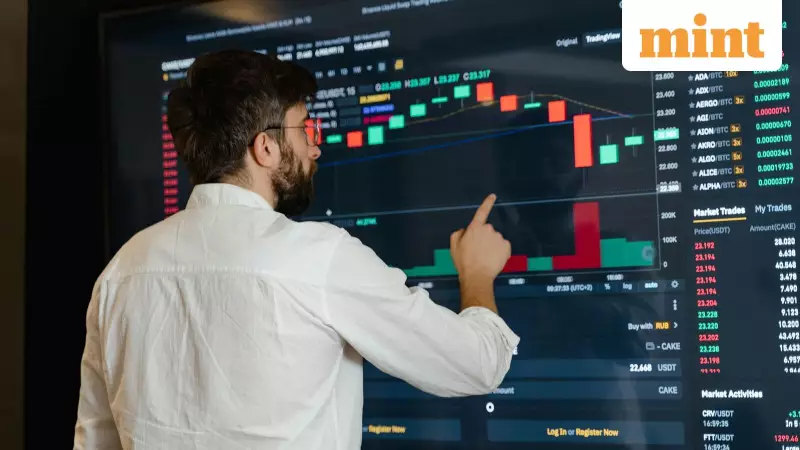
The global economy faces an unprecedented threat from potential stock market turbulence, with experts warning that an AI-driven market crash could trigger a widespread recession. According to recent analysis, while financial institutions have been predicting this scenario, few have considered the far-reaching consequences it could unleash.
The Warning Signs Everyone Is Ignoring
America's stock market appears headed toward one of the most predicted financial collapses in history. Financial leaders from banking executives to IMF officials have repeatedly cautioned about the extraordinary valuations of US technology companies. Central bankers worldwide are preparing for potential financial turmoil, while investors famous for betting against subprime mortgage bonds during the 2007-09 crisis have resurfaced for what some are calling another "big short" opportunity.
The speculation intensifies with every market fluctuation, such as the recent minor weekly decline in the NASDAQ technology stock index. The concern is well-founded - the cyclically adjusted price-earnings ratio of the S&P 500 index, driven primarily by the "magnificent seven" tech giants, has reached levels not seen since the dotcom boom era.
AI Investment Reality Check
Investors are banking heavily on artificial intelligence investments paying substantial returns. However, the numbers present a daunting challenge. JPMorgan Chase analysis indicates that for companies to achieve a 10% return on projected AI capital expenditure by 2030, they would need to generate collective annual AI revenues of $650 billion. This staggering amount translates to over $400 per year from every iPhone user globally.
Historical patterns show that such ambitious expectations for new technologies often face initial disappointment, even when the technologies eventually transform the world. The current AI euphoria differs from previous financial bubbles in one crucial aspect - unlike the debt-fueled subprime housing bubble of the late 2000s, today's AI excitement has been primarily equity-financed, reducing immediate systemic risks.
Consumer Vulnerability and Global Consequences
The real vulnerability lies with the American consumer. Stocks now represent 21% of US household wealth - approximately 25% higher than during the peak of the dotcom boom. AI-related assets account for nearly half of the increase in American wealth over the past year. As households grew wealthier, they became comfortable saving less than before the COVID-19 pandemic, though not as little as during the subprime boom.
A significant market crash would reverse these trends dramatically. Analysis suggests that a stock market decline comparable to the dotcom bust would reduce American households' net worth by 8%. This could trigger substantial cutbacks in consumer spending, estimated at 1.6% of GDP - enough to push America into recession, especially given the already struggling labor market.
The impact on consumers would far exceed any potential reduction in AI investment. The shock would spread to low-growth Europe and deflationary China, compounded by President Donald Trump's tariffs. With foreigners holding $18 trillion in exposure to American stocks, the wealth effect would be felt globally.
Broader Economic and Political Implications
While a potential recession rooted in equity markets might not be deep - similar to the shallow downturn following the dotcom crash - it would expose significant vulnerabilities in today's economic and geopolitical landscape. The Federal Reserve has room to lower interest rates to stimulate demand, and some nations would likely implement fiscal stimulus measures.
However, a downturn would weaken America's global hegemony, strain government budgets, and intensify protectionist tendencies. The situation becomes particularly concerning given that 2026 could bring increased political influence over the Federal Reserve, according to analysis in The World Ahead 2026 supplement.
Indebted governments worldwide would face severe fiscal challenges. While central banks cutting interest rates would ease debt servicing costs for the rich world's substantial debt burden (worth 110% of GDP), widening deficits from increased welfare spending and reduced tax revenue would create additional pressure.
The final consequence would affect global trade patterns. Reduced American spending would likely shrink the trade deficit, pleasing the Trump administration. However, China's manufacturing surplus - already causing concern as European and Asian producers compete with Chinese goods - would worsen as China exports less to America, potentially sharpening protectionist responses worldwide.
The world may be anticipating an American stock market crash, but comprehensive preparation for its consequences remains notably absent.





